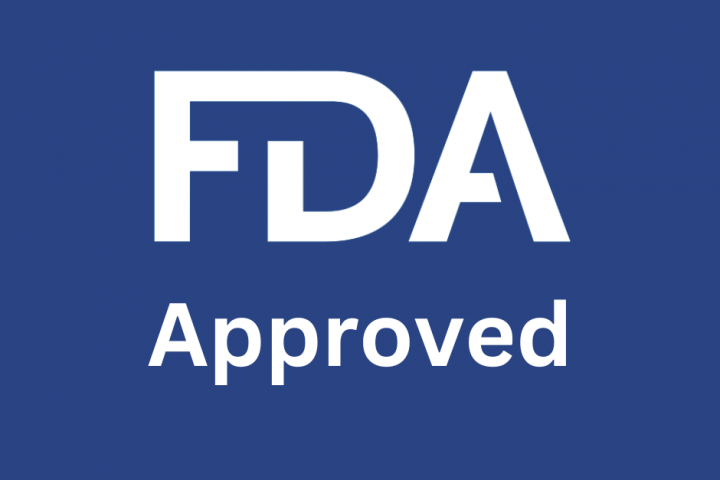Palbociclib after progression on Palbociclib in HR-positive HER2-negative breast cancer does not show improvement in progression-free survival
By Dr. Malak Alharbi of Roswell Park Comprehensive Cancer Center
CDK4/6i plus endocrine therapy is the first-line treatment for metastatic hormone receptor-positive, HER2-negative breast cancer after showing remarkably similar Progression Free Survival (PFS) benefits in large phase 3 clinical trials. Palbociclib in the PALOMA-2 trial, ribociclib MONALEESA-2, and abemaciclib MONARCH-3 trial have shown a PFS of 24.8 months, 25.3 months, and 28.2 months respectively.
However, the optimal second-line treatment after disease progression remains to be determined. Sequencing non-CDK4/6i options, switching to a different CDK4/6i, or switching to another endocrine therapy while continuing the same CDK4/6i remain an area to explore.
In a recently published randomized phase two clinical trial (MAINTAIN), switching to a different Endocrine Therapy (ET) and ribociclib showed a PFS benefit compared to ET and placebo. The median PFS for patients on ribociclib plus ET was 5.29 months (95% CI, 3.02-8.12) compared with 2.76 months (95% CI, 2.66-3.25) with placebo and endocrine therapy (HR, 0.57; 95% CI, 0.39-0.95; P = .006). At 12 months, the PFS rates were 24.6% (95% CI, 12.5%-36.7%) with ribociclib and 7.4% (95% CI, 0.4%-14.3%) without.
PALbociclib Rechallenge in horMone Receptor-posItive/HER2- Negative Advanced Breast Cancer (PALMIRA) is a phase two trial evaluating the benefit of using the same CDK4/6i (palbociclib) as a backbone (maintenance therapy) while switching to another ET. A total of 198 patients who had disease progression on first-line palbociclib plus endocrine therapy were included. Patients had to show a clinical response to palbociclib to be eligible. The study included both patients with either response or stable disease ≥24 weeks or who had progressed on a Palbociclib-based regimen in the adjuvant setting with disease progression after at least 12 months of treatment but no more than 12 months following palbociclib treatment completion. The primary endpoint was PFS, and secondary endpoints included overall response rate (ORR), clinical benefit rate (CBR), overall survival, and safety. The study was conducted between April 2019 and October 2022. At a median follow-up of 8.7 months and 155 PFS events, the median PFS was 4.2 months (95% CI 3.5–5.8) in the Palbociclib arm vs. 3.6 months (95% CI 2.7–4.2) in the placebo arm (hazard ratio 0.8, 95% CI 0.6–1.1, p=0.206). The 6-month PFS rate was 40.9% and 28.6% for Palbociclib and placebo arms, respectively. No significant differences were observed among 138 pts in ORR (6.4% vs. 2.3%) or CBR (33.0% vs. 29.5%) for palbociclib and placebo arms, respectively.
These findings are similar to those from the Palbociclib After CDK4/6i and Endocrine Therapy (PACE) 4 trial where continuation of palbociclib past disease progression did not result in a clinical benefit. PACE is a phase 2 study where patients with ER+/ HER2- metastatic breast cancer pre-treated with CDK4/6i and AI for at least six months were enrolled. A total of 220 patients were randomized 1:2:1 to fulvestrant alone (F); fulvestrant and palbociclib (F+P); or fulvestrant, palbociclib, avelumab (F+P+A). Around 75.9% had received CDK4/6 and ET for at least 12 months. Avelumab (PDL-1 inhibitor) was added to the third arm for a synergistic effect. As shown below, adding a PDL-1 inhibitor to palbociclib resulted in a longer median free survival. However, an analysis of tissue and blood markers is still pending. PFS with F+P vs. F (median 4.6 vs. 4.8 mo; HR=1.11, 90% CI 0.79-1.55; 2-sided p=0.62). Median PFS was 8.1 mo. with F+P+A (HR=0.75 vs. F, 90% CI 0.50-1.12; 2-sided p=0.23). ORR was 7.3% (90% CI 1.5-13.0) with F, 9.0% F+P (4.5-13.5%), and 13.0% F+P+A (5.4-20.5%).
In conclusion, the PALMIRA study did not show a significantly improved PFS using maintenance Palbociclib while switching to another ET compared to the second line ET alone. However, biomarker analysis results may help us understand why there was no significant improvement with continuing the same CDK4/6i while switching to another ET. Finally, differences among potency of various CDK4/6i remains a question. It is worth noting that in MAINTAIN trial, around 11% of the patients initially received ribociclib, while the majority received palbociclib. Thus, switching to a different CDK4/6i affected the resistance. In addition, given the OS benefit observed with ribociclib but not with palbociclib in metastatic clinical trials also makes us wonder if all the CDK4/6 inhibitors are not the same. We eagerly await biomarker data to help us further understand this outcome disparity.
References:
- Ashai N, Swain SM. Post-CDK 4/6 Inhibitor Therapy: Current Agents and Novel Targets. Cancers. Basel. 2023 Mar 20;15(6):1855. doi: 10.3390/cancers15061855. PMID: 36980743; PMCID: PMC10046856.
- Kalinsky K, Accordino MK, Chiuzan C, Mundi PS, Sakach E, Sathe C, Ahn H, Trivedi MS, Novik Y, Tiersten A, Raptis G, Baer LN, Oh SY, Zelnak AB, Wisinski KB, Andreopoulou E, Gradishar WJ, Stringer-Reasor E, Reid SA, O’Dea A, O’Regan R, Crew KD, Hershman DL. Randomized Phase II Trial of Endocrine Therapy with or without Ribociclib after Progression on Cyclin-Dependent Kinase 4/6 Inhibition in Hormone Receptor-Positive, Human Epidermal Growth Factor Receptor 2-Negative Metastatic Breast Cancer: MAINTAIN Trial. J Clin Oncol. 2023 May 19: JCO2202392. doi: 10.1200/JCO.22.02392. Epub ahead of print. PMID: 37207300.







